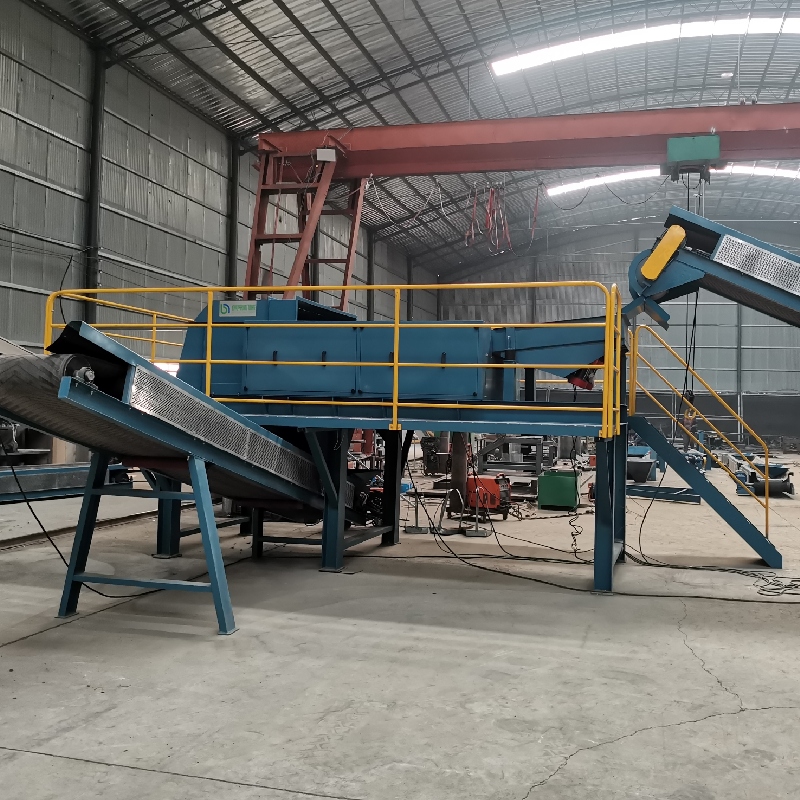

Nov . 21, 2024 15:16 Back to list
The Cost of Industrial Metal Shredders A Comprehensive Breakdown
In the world of recycling and waste management, industrial metal shredders play a pivotal role in processing scrap metal. These robust machines are essential for companies aiming to maximize efficiency, reduce waste, and profit from the recycling of metallic materials. However, one of the primary considerations for any business looking to invest in such equipment is the cost associated with purchasing and operating an industrial metal shredder.
Understanding the Basics
Industrial metal shredders are designed to crush large volumes of metal waste into smaller, more manageable pieces. These machines are equipped with powerful blades that can handle various metal types, including steel, aluminum, copper, and brass. The cost of an industrial metal shredder can vary dramatically based on several factors, including its size, capacity, features, and manufacturer.
Initial Investment Costs
On the surface, the cost of an industrial metal shredder can range from a few thousand dollars for smaller, lower-capacity models to several hundred thousand dollars for high-capacity, industrial-grade machines. It's essential to determine the right type of shredder based on your specific operational needs.
1. Size and Capacity Small to medium-sized enterprises may find that a less expensive, lower-capacity shredder meets their needs. These models can start from around $10,000, while larger machines designed for heavy-duty use can reach upwards of $100,000. The capacity of the shredder, measured in tons of output per hour, and the size of the feed opening are critical factors influencing the price.
2. Material and Construction Quality The materials used in the construction of the shredder can also affect the cost. Machines made from higher-grade steel and equipped with premium components may have a higher upfront price due to their durability and longevity. Investing in a robust shredder can result in lower maintenance costs over time.
3. Technology and Features Modern industrial metal shredders often come equipped with advanced technology, such as automated feed systems, integrated magnetic separators, and advanced control systems. While these features can increase the initial cost, they often lead to greater operational efficiency, lower labor costs, and higher-quality output, ultimately justifying the expense.
Operational Costs

Beyond the initial purchase price, businesses must also consider ongoing operational costs associated with running an industrial metal shredder. These include
1. Energy Consumption Industrial shredders require significant power to operate, and energy costs can add up quickly, especially for high-capacity machines that run continuously. Understanding the power requirements and calculating potential energy costs is crucial for budget planning.
2. Maintenance and Repairs Like any industrial machinery, metal shredders require regular maintenance to ensure optimal performance. This includes blade replacements, lubrication, and electrical system checks. Companies should factor in these costs into their annual budgets to avoid unexpected expenses.
3. Labor Costs Operating metal shredders efficiently often requires skilled labor. The need for trained personnel to manage the machinery, monitor the shredding process, and perform routine maintenance can also contribute to overall operational costs.
4. Wear and Tear on Equipment Over time, shredders experience wear on their components, particularly the blades. Factor in these costs for replacements and repairs, which can be significant based on the volume of metal being processed.
Additional Considerations
When determining the overall cost of investing in an industrial metal shredder, businesses should also evaluate potential financing options, including leasing versus purchasing. Leasing can alleviate some of the initial financial burdens while allowing companies to maintain operational flexibility.
Moreover, the return on investment (ROI) should also be a key consideration. Efficiently processed scrap metal can yield significant revenue, and understanding the local market for recycled metals can impact how quickly the investment pays off.
Conclusion
In conclusion, while the price of an industrial metal shredder may seem daunting, careful consideration of the types, capacities, and features available can help businesses make informed choices. By understanding both the initial investment and the ongoing operational costs, companies can better assess the true financial implications of adding a metal shredder to their recycling operations. As the demand for recycled materials continues to grow, investing in the right equipment will position businesses at the forefront of the green economy.
Latest news
Troubleshooting Common Eddy Separator Problems
NewsJul.04,2025
The Role of Metal Recycling Plants in Circular Economy
NewsJul.04,2025
The Impact of Recycling Line Pickers on Waste Management Costs
NewsJul.04,2025
Safety Features Every Metal Shredder Should Have
NewsJul.04,2025
How Industrial Shredders Improve Waste Management Systems
NewsJul.04,2025
How Cable Granulators Contribute to Sustainable Recycling
NewsJul.04,2025